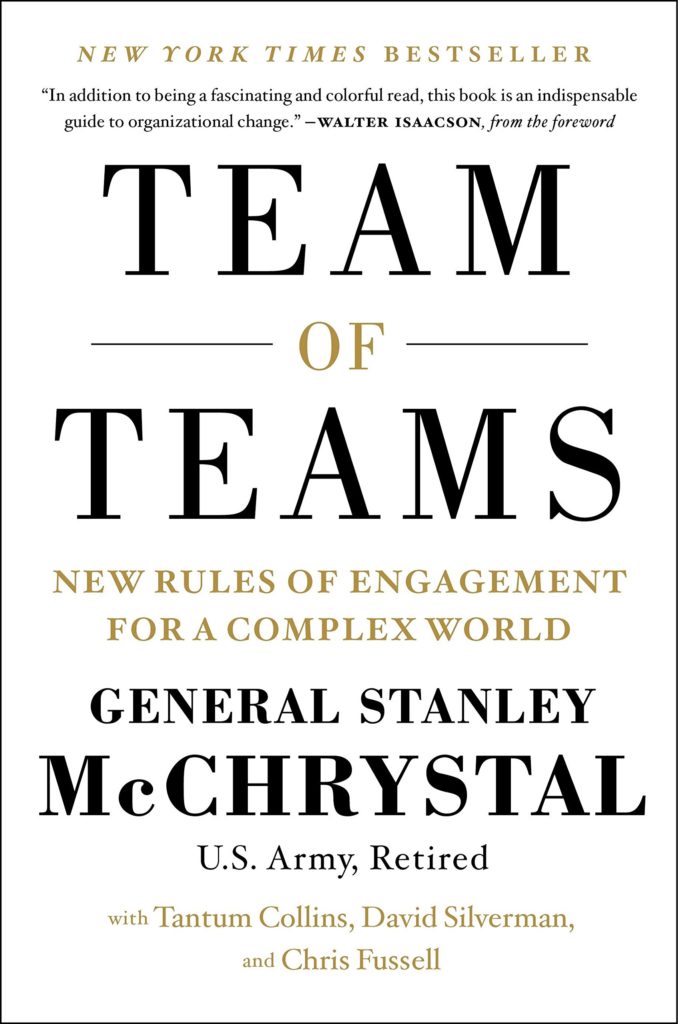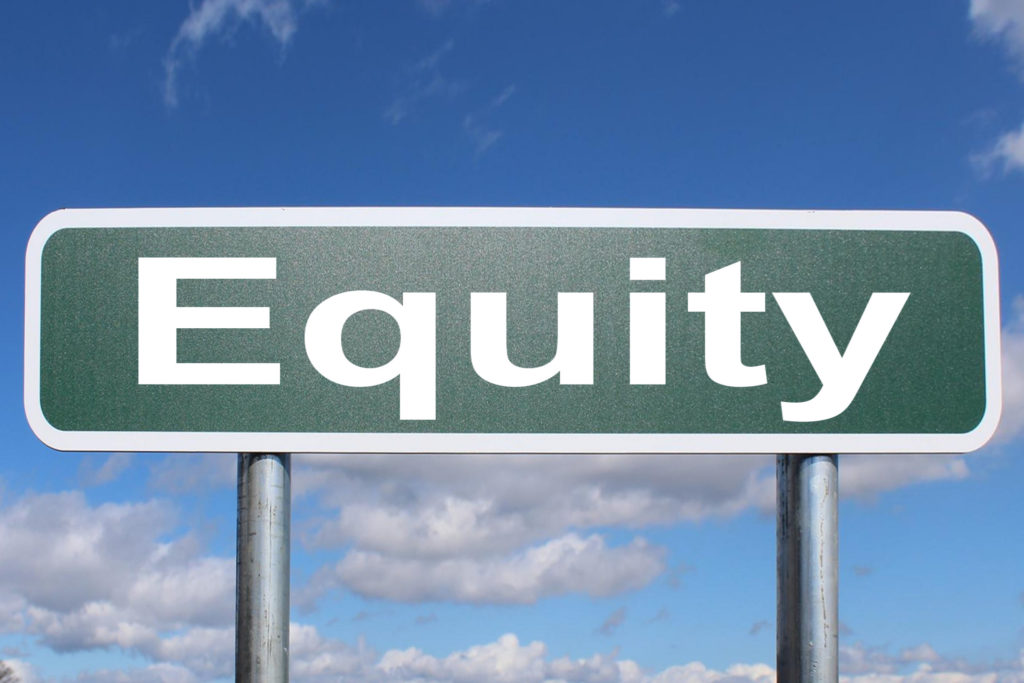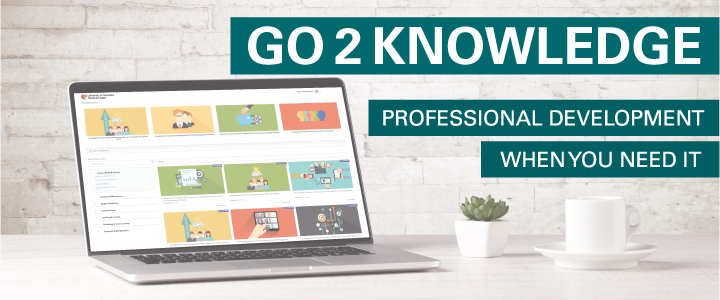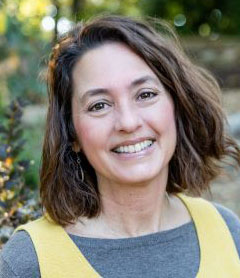I doubt the new strategic plan from the VCCS is on your summer reading list, but here’s why it should be: We all need to see the big picture.
I read reports and plans like this as part of my job in the grants office. When we are considering grant opportunities, we make sure our funding requests align with the bigger goals of the college, or in this case, with the aspirational goals of the entire Virginia Community College System.
By understanding our common purpose, we work more effectively as teams — as a system of 23 community colleges, down to our small departmental teams right here at Virginia Western.
This knowledge will empower each of us to contribute more ideas and make important decisions, no matter our role.

General Stanley McChrystal calls this “shared consciousness,” which he explains in “Team of Teams: New Rules of Engagement for a Complex World.” I don’t have much interest in reading about military missions, but I did find this book helpful. In fact, leadership author and systems thinker Meg Wheatley has said the U.S. Army is one of the only true learning organizations she has ever known. (“It’s better to learn than be dead,” responded one colonel.)
Using examples from his time leading the Joint Special Operations Task Force in Iraq, McChrystal argues for (1) constant, transparent communication and (2) horizontal relationship-building throughout organizations. He acknowledges this can be inefficient and time-consuming, but essential for busting the hierarchical, bureaucratic silos that slow us down. He writes: “If [shared consciousness] could work in the military (in many ways the archetypal stratified, ‘need-to-know’ domain) and the auto industry (pioneers of assembly lines and silos), it can work almost anywhere.”
McChrstyal’s core message is this: Adapting and thriving in our unpredictable world comes down to multiple small teams working together (teams of teams), which is all built on trust.
While the future may be unpredictable, the new VCCS strategic plan (called Opportunity 2027) can help us get a better idea of where we’re going — about VCCS priorities and how they will impact our work. As you will see, our strategic goals will require a lot of trust between ourselves, our students, and our communities.
The full Opportunity 2027 plan is 35 pages long. Here are my top five takeaways to help get us started:
1. What is the strategic goal?

There’s just one, and the VCCS emphasizes that it’s both bold and urgent:
Virginia’s Community Colleges will achieve equity in access, learning outcomes, and success for students from every race, ethnicity, gender, and socioeconomic group.
2. How does the VCCS define equity?
Equity is the existence of an environment in which policies, practices, and beliefs are grounded in the principle of fairness and that acknowledges structural racism, gender disparities, and systemic poverty, while honoring the diversity of humanity. This environment explicitly prioritizes the success of all students to ensure that they have the necessary resources to fulfill their college and career goals.
And to bring this all back to why I continue to read and I write about relationships: I watched a Future Trends Forum discussion with Dr. Tia Brown McNair, Vice President in the Office of Diversity, Equity, and Student Success and Executive Director for the Truth, Racial Healing, and Transformation (TRHT) Campus Centers at the Association of American Colleges and Universities (AAC&U). She emphasized multiple times: We cannot have equity without relationships. We have to practice deep listening and reflection, and focus on our common purpose and what connects us. Equity and relationship-building are inseparable.
3. How will we achieve this goal?
This is where it gets very wordy. The strategic plan is broken into five (5) supporting goals, followed by multiple strategies supporting each goal. I have read this document at least three times, and I still would fail a quiz about the details.
But here are the five goal “buckets” to give you a good idea:
- Communications and Engagement
- Reimagining Teaching and Learning
- Student Supports to Foster Success
- Meaningful Credentials and the Future of Work
- Reimagining Funding and Finance
Now comes the part when I urge you to read the 35-page plan yourself, as you might be interested to see how these goals and strategies may impact your specific role at the college.
For example, I zeroed in on Supporting Goal 3: Provide all students with a culture of care that responds to the needs of our diverse student population and supports and inspires their educational and career success. I just wrote a blog post about the Aspen Prize for Community College Excellence, which emphasized cultivating a culture of care. I’m thrilled to see that phrase in this strategic plan.
4. But what about more specific action items we can start now?
Go directly to page 22, where the plan provides a bulleted list of First Biennium Objectives. (I had to look up “biennium,” which means two years.) I used my highlighter the most on Pages 22-24, as these two-year objectives are more concrete than the goals and strategies. For example, there are multiple calls for professional development across departments, including faculty, onboarding advisors, and financial services staff.
This objective also caught my eye: “Convene a summit of college finance, student services, and institutional research staff to define ‘holistic integrated student financial ecosystem practices,’ document best practices for holistic financial supports among institutions, and evaluate best-in-class models at other public and two-year colleges.”
I immediately thought about a new position created by our Get REAL initiative: The College Affordability Navigator, an exciting role that will help students access all of the financial resources available across the college and beyond. I would hope the person hired for this position would be involved with the summit.
5. How will we measure our progress toward these goals?
The VCCS will (1) develop a public-facing dashboard with institution-level student data to track progress toward closing equity gaps and (2) appoint workgroups to implement strategies and objectives for each supporting goal.
Also: Each college president will develop biennial institutional priorities and report outcomes to the Chancellor.
Communicating these institutional priorities will be key as we continue to develop Virginia Western’s new strategic plan and understand how all of our initiatives fit together (Get REAL, QEP, etc.).
At the very end of the VCCS strategic plan (page 28), there’s even a helpful section that maps how current and past VCCS initiatives (Guided Pathways, TransferVA, G3, etc.) support the 2027 strategic goals.
I’m curious: What are you reading lately? Please add your summer recommendations in the comments, which is a new feature that came with our new website (thanks, Jaime and Jason!). Let’s take it for a spin …
Free professional learning opportunities
Did you know?

I recently learned all VCCS faculty and staff have free, unlimited access to live webinars and on-demand training provided by Go2Knowledge.
There’s a wide variety of topics for all roles at the college.
The live webinars are highlighted at the top of the Go2Knowledge dashboard, but you can search through an entire library of recorded, on-demand sessions on topics including teaching and learning, campus safety, institutional effectiveness, and student success.
There’s so much to choose from!
Here are a few upcoming live webinars over the next month:
- Using Social Media to Promote Your Academic Support Programs, June 10, 1 to 2 p.m.
- First-Year Transition Issues: How Advisors Can Positively Impact a Student’s First Term, June 15, 1 to 2:30 p.m.
- From Recruitment to Job Placement: A Retention Roadmap in the Age of COVID, June 29, 1 to 2:30 p.m.
- Examining Asynchronous & Synchronous Strategies for Active and Engaged Learning (back by popuar demand), July 13, 1 to 2 p.m.
You can access Go2Knowledge on your MyVWCC dashboard or here: Go2Knowledge.org/vccs
This week:
NSF Spring 2021 Virtual Grant Conference. Designed to give new faculty, researchers, and administrators key insights into a wide range of current issues at NSF. Program officers will be providing up-to-date information about specific funding opportunities and answering attendee questions. June 7-11. Registration is free.
The #RealCollege Virtual Journey, sponsored by the Hope Center for College, Community, and Justice. A series of online workshops and engaging activities led by experts and delivered free of charge. This week’s topics include How to Ungrade (June 9); and Investing in Community Colleges (June 9). Coming June 30 at 3 p.m.: Explore racism and financial trauma with Hope Research Fellow Chloe McKenzie. Register here. Recordings of previous events are available by scrolling down this page.
Knowing Our Students: Designing an Experience That Serves Students Holistically. Now more than ever, we recognize how connected a student’s personal and financial context are to their academic and career journey. This session will introduce a new guidebook developed by Achieving the Dream in partnership with the Advising Success Network designed to support higher ed institutions in better understanding their students and using these data to inform decisions about the college experience. Participants will engage in learning, discussion, and activities to ensure they leave with an understanding of the data that can be most useful, a process for using those data in their student success work, and examples of how other institutions have approached this work. Thursday, June 10, at 2:30 p.m. Free and open to the public. Register here.
The Future Trends Forum: Discussions about the future of education and technology with writer/futurist Bryan Alexander. Thursday, June 10, at 2 p.m.: How can we best teach digitally? with the University of Edinburgh’s Sian Bayne and Jen Ross, co-authors of A Manifesto for Teaching Online. More upcoming programs. Video recordings available on YouTube.
Next week:
Virginia’s Education Equity Summer Institute. June 15-17, 9 a.m. to 5 p.m. The Virginia Department of Education hosts this conference for Virginia educators, school leaders, education policymakers, and more. Breakout sessions and keynotes will include professional development to support Virginia’s recently expanded History and Social Science standards and the implementation of the new elective course in African American History for high school students that will launch this fall. June 15: Teaching Black History: Building Teacher Content Knowledge and Instructional Capacity. June 16: Teaching through Culturally Sustaining Pedagogies. June 17: Culturally Responsive and Inclusive Educator Practice at Four Critical Levels.
Beyond:
Bookmark the VCCS professional development website
Thank you for reading. Why does Stephanie Ogilvie Seagle feature free learning opportunities on the Green House Grants Blog? Because we transform ourselves by learning like our students. All of us are teachers and learners, no matter our titles.






 Shelley Lyons is glad to be back on campus as she is a Virginia Western alum, and has served as the Administrative Officer for Grants Administration at Virginia Western since early 2022. Prior to VWCC, her career focus was within the Human Services and Arts fields. She wrote her first grant in 1996 on a whim and has continued to plan and learn since that time. She most enjoys seeing a well-planned project come to fruition, where funder, project manager and beneficiaries can all feel success and see impact.
Shelley Lyons is glad to be back on campus as she is a Virginia Western alum, and has served as the Administrative Officer for Grants Administration at Virginia Western since early 2022. Prior to VWCC, her career focus was within the Human Services and Arts fields. She wrote her first grant in 1996 on a whim and has continued to plan and learn since that time. She most enjoys seeing a well-planned project come to fruition, where funder, project manager and beneficiaries can all feel success and see impact.